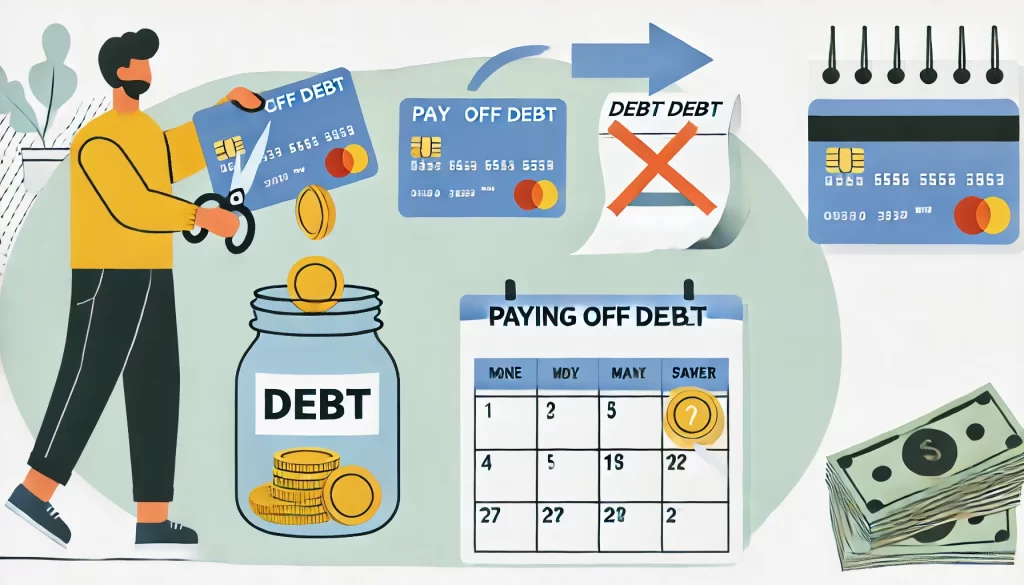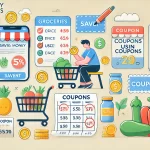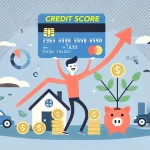Imagine running a marathon where you aim to save money on interest. This isn’t just a race; it’s a way to escape debt’s shadow. Millions of Americans face this challenge. Let’s explore debt repayment strategies that offer real hope and progress.
There are many ways to manage debt, like the Snowball Method or the Avalanche Method. The right approach depends on your financial situation. With the right tools, managing debt becomes easier.
Lowering interest rates or finding new income sources can help. These strategies are more than just numbers. They are lifelines for those in financial trouble. Finding balance in your budget is key.
Actions like saving money or earning more can help. Every dollar counts on your journey to debt freedom. Let’s explore ways to make this happen.
We’ll look at proven methods to free yourself from debt. These are not just ideas; they are real actions. Many people have used these debt repayment strategies to overcome debt. Let’s start our journey together.
Understanding Your Debt Repayment Options
Learning how to manage and cut down your debt is key to being financially healthy. The first step is to know about the different ways to pay off debt.
Assess Your Debt Load
Start by looking at all your debt. For example, if you owe money on credit cards and loans, it’s important to see the big picture. This helps you choose the best way to pay off your debt.
Weighing DIY Debt Payoff Methods
DIY plans like the debt snowball method and the debt avalanche approach can help you pay off debt. The snowball method starts with the smallest debts first. The avalanche method goes after the highest interest rates first.
Reading tips on saving money can also help. It can give you more money to put towards your debt.
Consider the Impact on Credit Utilization
Think about how these plans affect your credit score improvement. Paying off high-interest debt can really help your credit score. For instance, paying off a credit card balance of $750 can improve your score a lot.
By paying off debt in a smart way, you can reach financial stability. Understanding and using these strategies can lead you to a debt-free life.
Debt Reduction Through Consolidation
Looking into debt consolidation benefits is a smart move for those with high-interest debt. It combines many debts into one at lower interest rates. This makes managing money easier and can save a lot over time.
Choosing between debt consolidation loans and balance transfer credit cards is key. Both need a good credit score, usually 690 or higher for the best deals.
Securing a Lower Interest Rate
Consolidation can get you rates much lower than the high 30% on some credit cards. This drop in interest can save a lot of money. It can even help pay down your debt faster.
Evaluating Debt Consolidation Loans and Balance Transfer Cards
When looking at consolidation, check the terms and how they affect your money. Balance transfer cards offer zero percent rates for a while, then go up. Loans have fixed rates, which are stable but need careful thought to avoid losing important things like your home.
These plans aim to lower interest rates and make paying off debt easier. They also help your credit score by using less credit and making payments on time.
Optimizing Your Budget for Faster Debt Elimination
Getting rid of debt needs smart budgeting. The 50/30/20 rule helps split your income. It covers needs, wants, and savings for debt.
This plan keeps your money in order. It also helps you pay off debt first.
Pay more than the minimum on debts. This shortens the time to pay off. For example, a $5,000 credit card with 20.99% APR can be paid off in 20 months with $300 monthly payments.
This saves about $2,000 in interest. It shows how more money towards debt can help a lot.
Using technology can make budgeting easier. Apps track spending and automate payments. This reduces the chance of missing payments.
Payment history is 35% of your credit score. Regular payments help keep and improve your score.
Save money by choosing cheaper options. Use coupons, carpool, or cut down on utilities. These small savings add up and help pay off debt faster.
Everyone’s financial situation is different. But, good financial planning is about making a plan that works for you. It might mean paying off small debts first or tackling high-interest ones.
The goal is to clear your debt as quickly as possible. This makes your financial future more stable.
In short, smart budgeting, good financial planning, and focusing on spending can speed up debt repayment. It also leads to a more secure financial future.
5 ways to pay off debt: Increasing Income and Reducing Expenses
Managing debt is not just about knowing how much you owe. It’s also about making more money and spending less. This means finding ways to earn more and cut down on what you spend every month.
Lower Your Monthly Bills
To cut down your monthly costs, start by negotiating lower rates. Talk to your phone, energy, or insurance providers about better deals. Show them rates from competitors and ask if they can match them.
This helps you pay less each month. It also means you can pay off your debt faster. If you’re not afraid to switch services, you can save even more.
Boost Your Income with Side Jobs
To make more money, try part-time employment, freelance work, or side hustles. Use your skills or hobbies to earn extra. This can make a big difference in your finances.
Even a small raise at your main job can help a lot. It gives you more money to pay off debt.
These strategies help you manage and reduce debt. They also make your finances stronger by increasing your income and controlling spending. By working on both sides of your finances, you can pay off debt faster and have a healthier financial future.
Conclusion
Getting debt freedom is more than just a goal. It’s a way to find financial peace and move closer to achieving financial goals. First, you need to know how much debt you have and the interest rates on it. Then, you make a plan to pay it off.
Consolidating debt is a smart move for many. It combines several high-interest payments into one. This can lower your interest rates a lot. Some people have seen their rates drop to 8%, saving a lot of money.
But there’s more to getting rid of debt than just consolidation. The Debt Snowball and Debt Avalanche Methods can help too. They offer both quick wins and long-term savings. Making more money or spending less on things you don’t need can also help.
Every small step counts. Like packing your lunch or using cash instead of cards. These actions are all part of reaching your financial goals.
With U.S. credit card debt over $1 trillion and rates at 16.65%, managing debt is key. Using home equity for better rates or putting extra money towards debt can help. It’s a journey that takes discipline and the right advice.
Reaching debt freedom is not easy. It takes time, effort, and the right guidance. But the reward is a life free from debt, allowing you to pursue your dreams.






